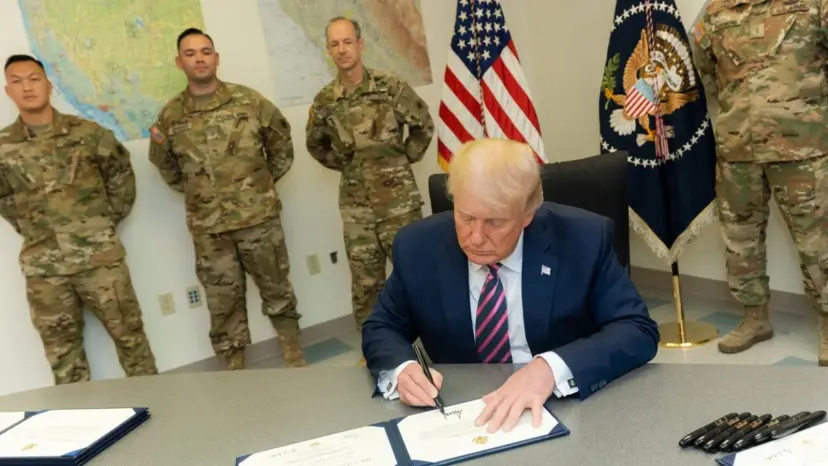The United States military has reportedly drawn up a range of attack plans targeting Nigeria, following President Donald Trump’s directive to prepare for potential action over what experts and officials have largely dismissed as false claims of a “Christian genocide.”
According to a report on Wednesday, the U.S. Africa Command (AFRICOM) submitted several contingency options to the Department of War at the request of Secretary Pete Hegseth. The proposed plans reportedly outline three levels of military response — heavy, medium, and light — allowing for different degrees of escalation depending on how the situation unfolds.

Three Tiers of Possible Action
Military officials cited by the New York Times said the “heavy option” represents the most forceful military approach under consideration. It would involve deploying an aircraft carrier group to the Gulf of Guinea, launching fighter jets or long-range bombers for deep strikes inside northern Nigeria.
The “medium option” focuses on drone warfare, using Predator and Reaper drones to strike militant camps, convoys, and vehicles. These drones can loiter over targets for hours while intelligence teams track “patterns of life” to enable precision strikes.
The “light option”, meanwhile, centers on partner-assisted operations, where U.S. forces and the State Department would support Nigeria’s military in targeting Boko Haram, ISWAP, and other extremist factions responsible for attacks, kidnappings, and killings across the north.
Strategic Objective and Sovereignty Concerns
According to the report, the main objective of these plans is to neutralize Islamist militants, protect Christian communities, and stabilize northern Nigeria.
However, several U.S. and African security analysts have warned that any unilateral military intervention could undermine Nigeria’s sovereignty, trigger civilian casualties, and strain diplomatic relations between Washington and Abuja.
The report also noted that the Department of War is currently reviewing AFRICOM’s submissions, though some officials have voiced concern over the potential consequences of implementing any of the proposals.

Analysts told the Times that one of the biggest challenges lies in the complex and multi-dimensional nature of Nigeria’s conflicts. Violence in the Sahel and Middle Belt is often driven by disputes over land, resources, and ethnicity, rather than religion alone.
This makes it difficult to frame the unrest purely in terms of Christian persecution or jihadist ideology, as claimed by President Trump and some U.S. politicians.
Operational and Logistical Challenges
Retired U.S. Army Major General Paul Eaton, a veteran of the Iraq War, told the Times that any heavy-handed military action in Nigeria could be disastrous.
“It would be a fiasco,” he warned. “These actions would cause shock and confusion rather than quell the conflict — it’s like pounding a pillow.”
Eaton added that the heavy option, which involves long-range bombers, would require deploying carrier groups to the Gulf of Guinea — a move complicated by limited carrier availability.
Currently, the USS Gerald R. Ford, America’s most advanced aircraft carrier, is being redirected from Europe to the Caribbean for an anti-narcotics campaign, while other carriers remain committed to the Pacific and Middle East.
Drone Limitations in West Africa
Even the drone-based medium option faces serious constraints. The U.S. military withdrew from its two key drone bases in Niger — Agadez and Niamey — in August, sharply reducing its operational reach in the region.
This withdrawal leaves the U.S. with no immediate launch platforms for sustained air operations over Nigeria or the Sahel.
The reported plans come shortly after President Trump accused Nigeria of committing “a Christian genocide,” a claim rejected by the Nigerian government and disputed by multiple independent investigations, including those by the BBC and human rights organizations.
Officials in Abuja have emphasized that terrorist violence in Nigeria affects both Christians and Muslims, calling Trump’s assertions a “misrepresentation of the security crisis.”
As the Pentagon and the Department of War deliberate on AFRICOM’s proposals, diplomatic observers warn that any U.S. strike on Nigerian soil could inflame regional instability and set a dangerous precedent for U.S.-Africa relations.
For now, Washington appears divided — between those urging restraint and those pushing for a show of force under the banner of protecting religious freedom.




